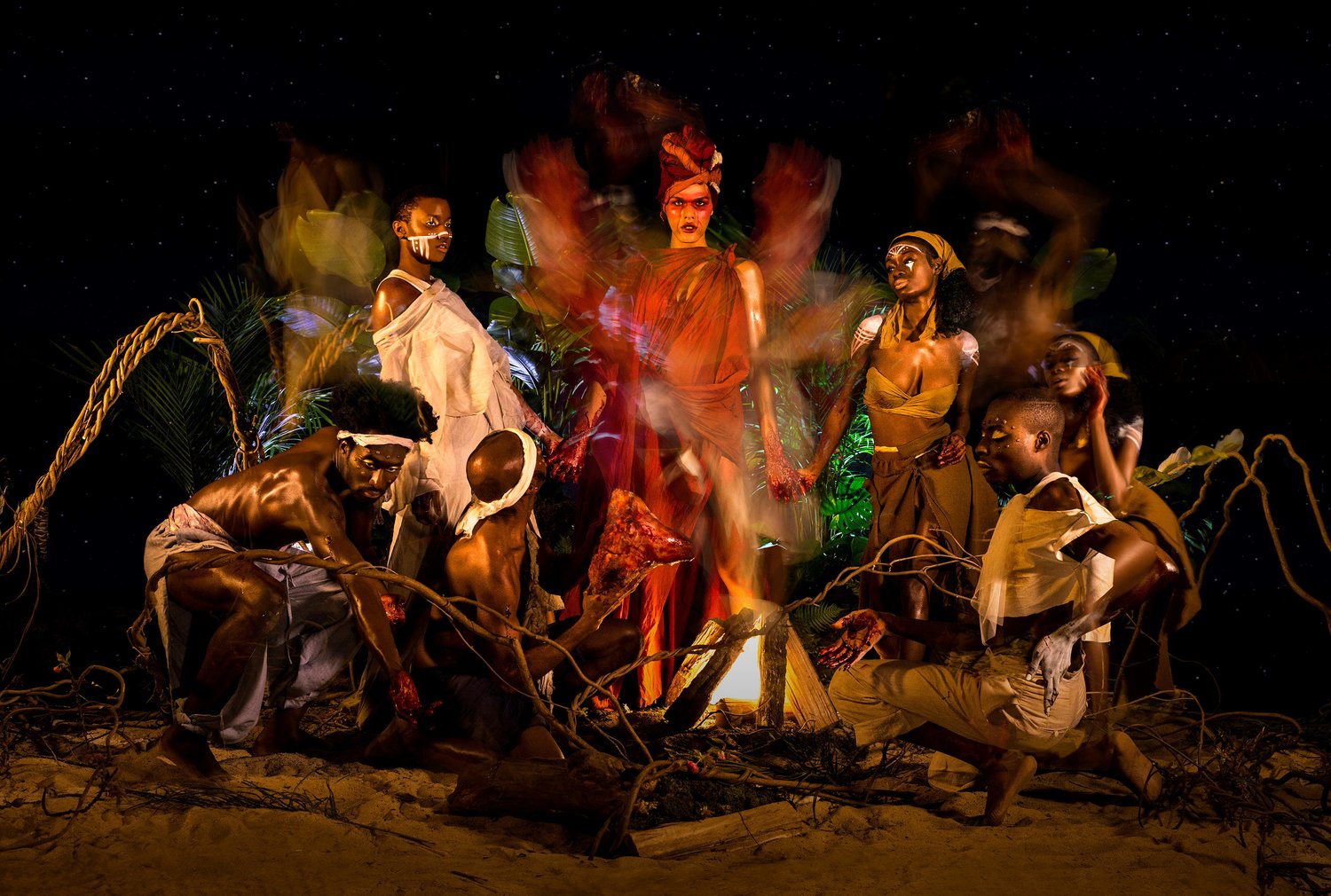Christopher Udemezue, BFA Integrated Design Curriculum ’08
Born in Long Island, NY Christopher Udemezue has shown at a variety of galleries and museums, including the New Museum, Queens Museum of Art, Brooklyn Arts Exchange, AC Institute Art Gallery, and Envoy Enterprises. Christopher has been featured in New York magazine, The New Yorker, Artnet news, Gayletter magazine, Brooklyn Rail magazine, Afro Punk, Style.com and OUT Magazine. As the lead organizing member in the art collective House of Ladosha, Christopher’s work explores queer issues as they intertwine with the social politics of communities of color. His recent body of work utilizes his Jamaican heritage and the complexities of gender identity, desire, tragedy through personal and public mythology and public lynching as a primary source. As the founder of the platform RAGGA NYC, Christopher completed a residency with the New Museum “All The Threatened And Delicious Things Joining One Another” in June 2017, exploring Afro-Caribbean diasporic traditions, bringing together works by a group of artists who trace their own relationships to Caribbean history.

Untitled (Taken by the loa with a knife in her hand, she cut the throat of a pig and they all swore to kill all the whites on the island)
Christopher Udemezue, BFA Integrated Design Curriculum ’08
2017
Framed photograph
